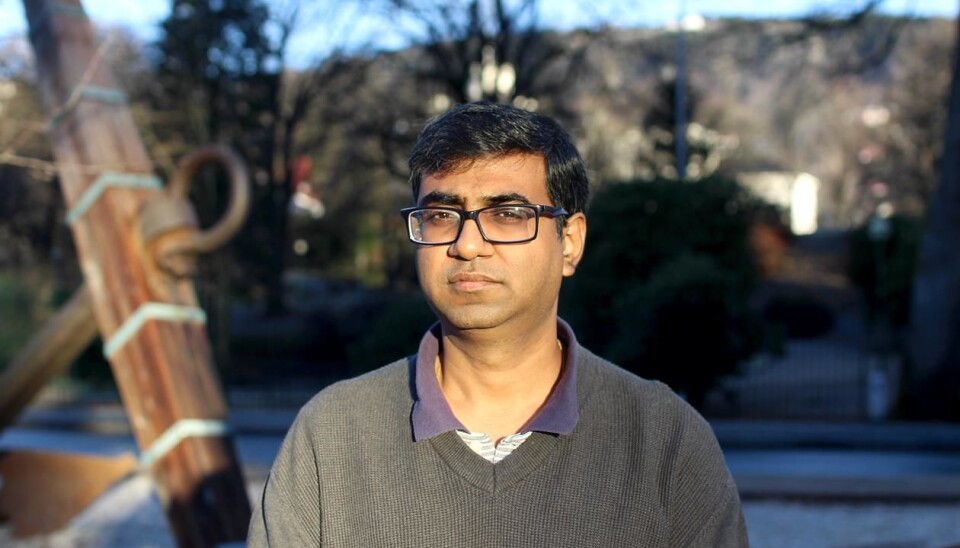This article was produced and financed by University of Bergen

Making sense of Big Data
UiB researcher Saket Saurabh embarks on a new ERC funded project, aiming to revolutionise how we handle, utilise and compress Big Data.
"When solving a problem, everyone wants the correct solution, which often is not possible, if there is time constraint. Imagine that you have a huge amount of data and you only need some of it to solve your problem in the best possible way. If I succeed, I will be able to work through all the data, and give you exactly the data you need to process without losing much in accuracy; going from Big Data to Small Data, so to speak" says Saket Saurabh, Professor at the Department of Informatics at the University of Bergen (UiB).
He and a team of three other scientists will develop an algorithm that compresses Big Data into smaller amounts of data, specifically, the data that one needs to solve a particular problem. In addition, they will apply mathematics to understand the limits of the algorithm. Knowing when a problem can not be solved is valuable information. The mathematical aspect will also calculate efficiency, as well as the amount of storage the compressed data requires.
Smaller data, smaller files
The research results will be applicable in a wide array of academic areas, such as machine learning, computational geometry and in all subjects that need to handle larger amounts of data. Saurabh hopes that this entirely new way of compressing data can be applied even in everyday life.
"It is possible that we may be able to make files such as .jpg smaller, as well as optimising apps and programmes, for example. This should have some say in all cases where compression plays a part," he says.
"All we need is a blackboard and our brains"
For his project, Saurabh has been awarded the European Research Council's (ERC) Consolidator Grant. The project is estimated at 2 million euro and will support 11 years of post-doctoral research (5 persons). These prestigious grants are designed to support researchers of any nationality at the stage of consolidating their own research team or programme. This is the second ERC personal grant for Saket Saurabh who held an ERC starting grant from 2013 to 2017.
"This type of compression with loss has been tried and experimented with for decades, but without any systematical approach. Our project is needed now and has not been done before. It will involve many different fields, and these aspects make the project important, says the Professor.
He says the grant gives him freedom to explore his research, recruiting his own research team. At the time of writing, he does not know how much money the grant will provide him. Either way, his research does not require expensive infrastructure and labs.
"We do not need a lab, all we need is a blackboard and our brains".
Looking for passionate and fun-loving researchers
He knows what he is looking for when assembling his research team.
"I am looking for people that are passionate, who believe that the process will be fun. That gives a project extra energy. For me, science has always been a sociable thing" he says.
He also has the experience on how he wants the team to work together
"We will have no hierarchy in the project team. We all have a common goal. I do not want anyone calling me Professor, just Saket. This is how I work. A hierarchy merely creates another layer, an obstacle in reaching our goal."
This way of working was new to him when he came to UiB and Norway as a post.doc.
"I learned this from working here at the Department of Informatics and at UiB. When I came here, everyone treated me like an equal. The people here are like my extended family. I am who I am today because of the people at the department."
































